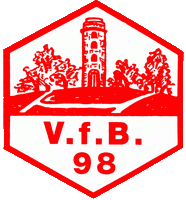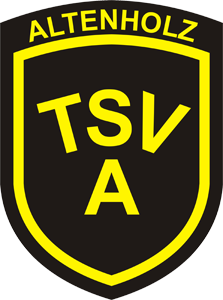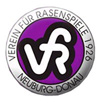
The Oberliga Schleswig-Holstein, formerly referred to as Schleswig-Holstein-Liga, is the fifth tier of the German football league system and the highest league in the German state of Schleswig-Holstein. It is one of fourteen Oberligas in German football.

The 1. FC Haßfurt is a German association football club from the city of Haßfurt, Bavaria.

1. FC Herzogenaurach is a German association football club from Herzogenaurach, a suburb of the city of Nuremberg, Bavaria.

The TBVfL Neustadt-Wildenheid is a German association football club from the city of Neustadt bei Coburg, Bavaria.

The VfB Helmbrechts is a German association football club from the city of Helmbrechts, Bavaria.
The Verbandsliga Schleswig-Holstein-Ost is the seventh tier of the German football league system and the third-highest league in the German state of Schleswig-Holstein, together with five other leagues at this level in the state. The league was formed at the end of the 2007–08 season, to replace the previously existing Bezirksoberligas at this level.
The Verbandsliga Schleswig-Holstein-Nord is the seventh tier of the German football league system and the third-highest league in the German state of Schleswig-Holstein, together with five other leagues at this level in the state. The league was formed at the end of the 2007-08 season to replace the previously existing Bezirksoberligas at this level.
The Verbandsliga Schleswig-Holstein-Süd is the seventh tier of the German football league system and the third-highest league in the German state of Schleswig-Holstein, together with five other leagues at this level in the state. The league was formed at the end of the 2007–08 season, to replace the previously existing Bezirksoberligas at this level.
The Verbandsliga Schleswig-Holstein-West is the seventh tier of the German football league system and the third-highest league in the German state of Schleswig-Holstein, together with five other leagues at this level in the state. The league was formed at the end of the 2007-08 season to replace the previously existing Bezirksoberligas at this level.

TSV Altenholz is a German football club from the city of Altenholz, Schleswig-Holstein.

The FSV Bayreuth is a German association football club from the city of Bayreuth, Bavaria.

TuS Celle FC is a football club based in Celle, Lower Saxony, Germany. They are currently members of the Kreisliga Celle and play at the Günther-Volker-Stadion.

The VfR Neuburg is a German association football club from the town of Neuburg an der Donau, Bavaria.

The SV Erlenbach is a German association football club from the town of Erlenbach am Main, Bavaria.

The BSC Sendling is a German association football club from the Munich suburb of Sendling, Bavaria.
The SpVgg Vohenstrauß is a German association football club from the town of Vohenstrauß, Bavaria.

SC Weiche Flensburg 08 is a German association football club from the Weiche suburb of Flensburg, Schleswig-Holstein. Apart from football the club also offers other sports like volleyball and table tennis.
VfL 93 Hamburg is a German association football club from the city of Hamburg.

Itzehoer SV was a German association football club from the town of Itzehoe, Schleswig-Holstein. The club's greatest success was promotion to the tier-one Oberliga Nord, where it spent a single season in 1950–51. It also played in the then-second division Regionalliga Nord from 1965 to 1974.

1. FC Phönix Lübeck is a German association football club from the city of Lübeck, Schleswig-Holstein. The club has, historically, played at highest level in Germany, with the last stint of this coming from 1957 to 1960 in the tier one Oberliga Nord. After the introduction of the Bundesliga in 1963 Phönix played in the tier two Regionalliga Nord from 1967 to 1974 but has since fallen to regional amateur level.














